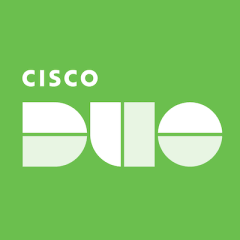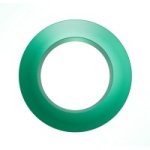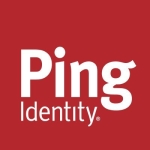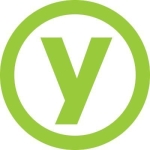
IT specialist at a healthcare company with 51-200 employees
Enhanced security with multi-factor authentication at a premium cost
Pros and Cons
- "The most valuable feature of Cisco Duo for us is the multi-factor authentication."
- "The price of Cisco Duo could be better."
What is our primary use case?
How has it helped my organization?
Cisco Duo improved our security posture. It improved our security.
What is most valuable?
The most valuable feature of Cisco Duo for us is the multi-factor authentication.
What needs improvement?
The price of Cisco Duo could be better.
Buyer's Guide
Cisco Duo
December 2025
Learn what your peers think about Cisco Duo. Get advice and tips from experienced pros sharing their opinions. Updated: December 2025.
879,371 professionals have used our research since 2012.
For how long have I used the solution?
I have been using Cisco Duo for about three months.
What do I think about the stability of the solution?
The stability of Cisco Duo is very high. I would rate it highly.
What do I think about the scalability of the solution?
The solution scales well on a scale of one to ten, I would rate it an eight.
How are customer service and support?
We don't use Cisco Duo's support directly, only through our supplier.
How would you rate customer service and support?
Positive
Which solution did I use previously and why did I switch?
We used Microsoft Authenticator before switching to Cisco Duo because it was connected to other Cisco technologies.
How was the initial setup?
The initial setup of Cisco Duo was quite easy.
What about the implementation team?
Cisco Duo was implemented by our supplier, who set it up for us.
What's my experience with pricing, setup cost, and licensing?
I would rate the pricing of Cisco Duo as a seven on a scale of one to ten, which means it is quite expensive.
Which other solutions did I evaluate?
We evaluated Microsoft Authenticator before choosing Cisco Duo.
What other advice do I have?
I would recommend Cisco Duo for its reliability, stability, and ease of implementation.
I'd rate the solution eight out of ten.
Which deployment model are you using for this solution?
Public Cloud
If public cloud, private cloud, or hybrid cloud, which cloud provider do you use?
Other
Disclosure: My company does not have a business relationship with this vendor other than being a customer.
Assistant IT Director at a government with 501-1,000 employees
Provides two-factor authentication, which adds an additional layer of security and easy user adaptation
Pros and Cons
- "Duo Security gives us an additional layer of security that would give us added confidence that our network will be less likely to get hacked, compromised, or otherwise."
- "There is a little bit of apprehension for some users thinking, well, "How do I know this app is not collecting personal information from my personal device?""
What is our primary use case?
We use it citywide. I work for a city, local government, and we implemented it during the pandemic.
We support it for remote access to our network. Every city employee is required to use it, including the police and fire departments. However, it's hard to concretely say if the solution has helped reduce the risk of breaches in one way or another.
Apart from that, we focus on user education in cybersecurity and provide training to our end-user population to heighten awareness. This is in addition to the two-factor authentication, so we don't solely rely on that.
How has it helped my organization?
Duo Security has improved our organization from a security standpoint. The two-factor authentication has become a requirement in most cases. It is specifically required by cybersecurity insurance.
Not only are we doing it for requirement purposes, but it also gives us an additional layer of confidence. Duo Security's additional layer of security gives us added confidence that our network will be less likely to get hacked, compromised, or otherwise.
Moreover, we're very satisfied with the solution for helping secure our infrastructure from end to end. It definitely gives us an added layer of our confidence knowing that two-factor authentication is implemented. In our organization, network-wise, the confidence level is fairly high, and we're happy with it.
The way we involve the end users is with their mobile devices and mobile phone numbers. Once they do get involved, we are pretty confident that they are being reached out to through the number that we have in the system for them, and there's really no reason on our end to doubt the validity of those authentication requests when they come through. We trust Duo Security for every access request, no matter where it comes from.
Duo Security has become essential to our environment, considering today's time when our workforce is becoming more and more mobile.
Duo Security helped our organization improve its cybersecurity resilience. It has given that added layer of security and keeps the awareness on the user's end as well.
What is most valuable?
It's easy to use, frankly. All it takes really is for the end user to download the app. For me, I have an Apple Watch; I don't even have to wait for my phone. I can accept the prompt right there and just be on my way.
Moreover, we are comfortable and have high confidence in the solution's user authentication; device verification can prevent identity-based attacks.
What needs improvement?
One of the challenges was for the police force. A lot of them, at first, weren't keen on using their personal cell phone for, quote-unquote, city business. As a city, we require them to download an app for two-factor authentication. There is a little bit of apprehension for some users thinking, well, "How do I know this app is not collecting personal information from my personal device?" was the only obstacle we ran into. Overall, satisfaction is good.
To mitigate this problem, there was an option where the city would choose to just go with utilizing the app. There's another option where you can get a text message as opposed to having to download the app and accept what the app has on it.
For how long have I used the solution?
I have been using Duo Security for three years.
What do I think about the stability of the solution?
Duo Security is a stable solution.
What do I think about the scalability of the solution?
We never encountered any issues in terms of scalability.
How are customer service and support?
The customer service and support have been very good. We haven't had to call them many times. They've been able to assist every time there was an issue.
The responses have always been timely, and I haven't gotten any complaints from our security manager.
Which solution did I use previously and why did I switch?
We used a different solution but had it in limited use only for our public safety team. That was a requirement at the time because of the type of information that they had access to. We were looking for something versatile.
With Duo Security, the easier user access and user adaption were a little easier. We felt the solution was a little clunky at times, and we are already in the Cisco ecosystem, and that's one of their products. So we decided that was the best solution at the time. That's why we switched to Duo Security.
How was the initial setup?
Implementation was fairly easy. Moreover, once you have it implemented, it's very minimal.
Duo Security doesn't require a lot of maintenance. From that standpoint, the solution has freed up time. However, it's not something that we had beforehand. In other words, it's not necessarily alleviating work. However, it is easy to manage.
What's my experience with pricing, setup cost, and licensing?
The pricing was a lot more than what we were paying for our previous solution. However, our previous solution only covered two out of the sixteen departments within the city.
It’s a bit of a pie chart in that sense but we understood that with Duo Security, we were deploying it on a broader scale.
Overall, the pricing was higher than our expectations, but considering the circumstances during the pandemic and the increased demand, we understood the importance of making the right decision and moving forward with the best product.
I would say we are happy with it. However, I haven't conducted any recent market surveys to compare pricing, so it's difficult to make a definitive statement. Ultimately, what matters most is the satisfaction of our end users, and in that regard, it is currently very high.
Which other solutions did I evaluate?
We did look at some other products. We had a security manager who was responsible for conducting the necessary research and legwork. However, he did present us with a few different solutions, and our network manager was also involved in exploring options. Ultimately, Duo Security was selected as the preferred solution.
And also, what happened right before then, we had attended Cisco Live, had been exposed to Cisco Duo, and really liked what we saw. So we went into it with a bit of bias, to be honest, because we already saw it.
What other advice do I have?
Duo Security is a great solution. The adoption and learning curve for the end user is low, in our opinion.
Overall, I would rate Duo Security an eight out of ten.
Which deployment model are you using for this solution?
Public Cloud
If public cloud, private cloud, or hybrid cloud, which cloud provider do you use?
Microsoft Azure
Disclosure: My company does not have a business relationship with this vendor other than being a customer.
Buyer's Guide
Cisco Duo
December 2025
Learn what your peers think about Cisco Duo. Get advice and tips from experienced pros sharing their opinions. Updated: December 2025.
879,371 professionals have used our research since 2012.
Principal Architect at a comms service provider with 1-10 employees
A reliable and easy-to-use solution that is reasonably priced
Pros and Cons
- "The product is reliable and easy to use."
- "The technical engineers in the first line of support should improve their knowledge."
What is our primary use case?
We use Duo Security for multi-factor authentication.
How has it helped my organization?
The product makes our organization more secure.
What is most valuable?
Duo is reliable and easy to use. I’m pretty happy with all of the features. The user experience is pretty good. People without any technical background can run the applications without any issues.
What needs improvement?
The technical engineers in the first line of support should improve their knowledge. We often have to bounce all the cases to different levels.
For how long have I used the solution?
I have been using Duo Security for more than ten years.
How are customer service and support?
Technical support is pretty responsive. When there was an issue, support was able to provide a solution.
How would you rate customer service and support?
Neutral
How was the initial setup?
From the security team’s perspective, the solution is pretty easy to deploy. From an end user’s perspective, it is very easy to download it and add the device to the profiles.
What about the implementation team?
We deploy the solution in-house.
What's my experience with pricing, setup cost, and licensing?
The pricing is reasonable.
What other advice do I have?
Since I'm not an admin, I don't know how the device gets set up. The product is pretty good at securing our infrastructure. It protects everything and hardly leaves anything open. The infrastructure is secured.
Duo Security cannot do it all when it comes to reducing the risk of breaches. It can probably provide up to 50%, and the rest depends on the user. Things like phishing emails depend on the user. There is nothing that Duo Security can't do. The product does a pretty good job of protecting the infrastructure.
Duo Security’s user authentication and device verification are very good and very reliable. When we get a message to upgrade, we upgrade the tool. I don't have to spend a lot of time to get the device up to date.
The solution is reliable for establishing trust for every access request. It definitely is able to establish trust for the identity to protect the infrastructure. Our organization doesn’t necessarily believe that all resources must be considered external. We try to strike a balance between convenience and security. We don't treat everything as external. We keep certain internal stuff that doesn't have to go through the authentication.
The product increases the awareness of the employees about cybersecurity. Every time I log in, a Duo box pops up saying that I am authenticated and not leaving everything wide open. Try it and get a trial base, and then you will see the difference the tool can make.
Duo is the first platform that we used. My organization did an analysis to see how many potential attacks we'll have and how much money will be lost if we do not deploy Duo. I am not sure about the metrics, though.
Overall, I rate the product a nine out of ten.
If public cloud, private cloud, or hybrid cloud, which cloud provider do you use?
Amazon Web Services (AWS)
Disclosure: My company does not have a business relationship with this vendor other than being a customer.
Network Administrator Team Lead at a construction company with 5,001-10,000 employees
Establishes trust for every access request, no matter where it comes from
Pros and Cons
- "It's easy to deploy. It's easy to manage. It's easy to integrate with other applications."
- "The new smart license model doesn't always work. It's very complicated."
What is our primary use case?
We use it for multi-factor authentication. That's the only use case we have now. We're not using it to its maximum capabilities but we'll use it for more functions moving forward.
How has it helped my organization?
Duo Security has improved our cybersecurity resilience. Multi-factor authentication gives us another layer of protection. Having another layer of security is very important for us.
Duo Security establishes trust for every access request, no matter where it comes from. This is something that's absolutely needed.
What is most valuable?
It's easy to deploy. It's easy to manage. It's easy to integrate with other applications.
We also use it for single sign-on with Meraki and VPN access for non-Cisco firewalls, but we're now migrating to Cisco firewalls. It's easy to deploy, and it works.
What needs improvement?
I'm not using it as much as I could. So far, it has everything I need. I don't have any requirements or improvements. Everything is working smoothly, and we're happy with it.
For how long have I used the solution?
We have been using Duo Security for about two years.
What do I think about the stability of the solution?
Its stability is great.
What do I think about the scalability of the solution?
We have 1,500 users that use Duo Security. We're planning to use Duo Security for more applications, but the number of users won't increase anymore, so in terms of scalability, I don't think we'll have any issues.
How are customer service and support?
We have opened some cases with Cisco for questions and things at all, and they were very helpful. They're very good. They answer questions quickly, and the people who work there are knowledgeable, so I can't complain. I'd rate them a ten out of ten because I got prompt responses and knowledgeable people.
How would you rate customer service and support?
Positive
Which solution did I use previously and why did I switch?
We were using Microsoft Authenticator before, but we had a lot of problems with that, so we had to move away from that. Initially, we didn't have any multi-factor authentication, so having a multi-factor authentication for multiple applications and services that we provide helps us in making our network more secure.
How was the initial setup?
You synchronize your AD with Duo Security and create all the groups for access. You send the emails to do the deployment, and you load the cell phone numbers. That's for the end-user side, and for the firewall, we have the proxies. We're using a proxy for one of the products. Our firewall sends RADIUS requests to the proxy, and the proxy communicates to Duo Cloud. The virtual machine deployment for the process was very easy. The configuration takes a few steps, but it's easy.
We've both on-premise and cloud deployments. We're using the tool on the cloud, but we don't have any infrastructure on the cloud.
What about the implementation team?
We did the deployment ourselves.
What was our ROI?
We have seen an ROI. The cost of not having it means you're vulnerable to hacking and other things. Nowadays, multi-factor authentication is required for insurance. It's a must now.
What's my experience with pricing, setup cost, and licensing?
It's very simple. Its price is fair. We use the hardware tokens as well. You get what you pay for.
In terms of licensing, Cisco has very complicated products, but Duo Security was surprisingly easy. The licensing model is easy. The license is based on the intent. You can see how many licenses you have. It's one of the easiest solutions I have deployed, so I'm very happy about it. Every other Cisco product—such as switches, APs, wireless, and controllers—has a very complicated license model. The new smart license model doesn't always work. It's very complicated. The vendors will put your license somewhere else. You need to talk to vendors. It's complicated, but Duo Security licensing is simple.
Which other solutions did I evaluate?
We evaluated RSA, Microsoft, and Duo Security. We evaluated these three, and we realized that Duo Security had better reviews, and it was easier to deploy and cost-effective, so it made sense to use it.
What other advice do I have?
Overall, I'd rate Duo Security a ten out of ten.
Disclosure: My company does not have a business relationship with this vendor other than being a customer.
Senior Director of Engineering Services at a tech consulting company with 10,001+ employees
An easy-to-install multi-factor authentication platform that offers speed and dependability at the same time
Pros and Cons
- "Regarding the valuable features, I would say that Duo Security is easy to use, has speed, and is dependable."
- "I wish that the support would be a little bit more prompt and a little bit more flexible because there are certain things that they will do and certain things they won't do."
What is our primary use case?
You don't need any other Cisco security products in order to use it. That's what makes it easy.
Normally, people use it for multi-factor authentication. It's an easy-to-install multi-factor authentication platform.
What is most valuable?
Regarding the valuable features, I would say that Duo Security is easy to use, has speed, and is dependable.
What needs improvement?
It would be nice if there was a biometric option rather where you could accept with a fingerprint. Like, in an iPhone, they have fingerprint authentication and face ID. It would be nice if there was a biometric acceptance as opposed to just clicking and accepting.
For how long have I used the solution?
I have been using Duo Security for thirteen years. I am a distributor of the solution.
What do I think about the stability of the solution?
Regarding stability, I don't know if that comes into question. With my clients, I haven't seen them facing stability issues.
What do I think about the scalability of the solution?
I have seen it deployed in an organization with 50 people and another with 5,000 people.
How are customer service and support?
I love the solution's technical support. Regarding the adjectives I would use to describe the support, I would say that the support was professional and accommodating. I wish that the support would be a little bit more prompt and a little bit more flexible because there are certain things that they will do and certain things they won't do. Then they push what they won't do back down to the distributor.
I also wish that they consider us as distributors because we're not the traditional partner. It's almost like we are Cisco. I wish that we could share more resources behind Cisco Firewall and behind Cisco's resources. I rate the support an eight out of ten.
How would you rate customer service and support?
Positive
Which other solutions did I evaluate?
The reason we chose Duo Security over its competitors is because it's a freebie that you can try and see how it goes. There is also the ease of integration with Duo Security. I don't really know of any other MFA that is as simple. With Duo Security, it's like, here's your authorization, and you need to click on the yes or no options.
What other advice do I have?
I would say that the solution does increase security because it does require MFA, and as long as the company enforces it installed on a specific device, it works.
It does not secure my infrastructure from end to end and detect or remediate threats. It's not the function of the product.
Regarding my assessment of Duo Security for establishing trust for every access request, no matter where it comes from, I would say that it is absolutely dependent on how the company deploys it. If the company says just deploy Duo Security on an old device, then it's kind of a hope.
The whole point of having Duo Security is that it considers all resources to be external.
Multi-factor authentication in general helped my organization improve its cybersecurity resilience. Any MFA will do that.
I would tell those considering having Duo Security in their organization that it's easy. You don't need to have every other Cisco product out there since I know that, for a fact, you can do it with Sophos and Fortinet. You can do it with other products, not just Cisco.
I rate the overall product an eight out of ten.
Disclosure: My company has a business relationship with this vendor other than being a customer. Distributor
IT Manager at a manufacturing company with 51-200 employees
It helped us prevent unauthorized access after a phishing attack
Pros and Cons
- "Cisco is the perfect product for our current size, and I don't think we'll have problems with scalability as we grow."
- "Most of my colleagues from other companies use the Microsoft MFA solution because it's included in Office 365. Few people are considering Cisco Duo. That's the primary problem in our area. It's a solution mostly adopted by Cisco users."
What is our primary use case?
Duo is part of a complete security package that Cisco provides. Initially, we only used Duo to secure Microsoft 365, but we now use it for other applications like VPN, terminal server access, etc.
How has it helped my organization?
A couple of months ago, our colleagues got phishing emails from real accounts because other companies got hacked. The scammers write emails from a hacked account because they see an employee on the contact list. They seem real because the images are authentic. That leads to a portal where you have to insert your credentials.
Like any MFA, Cisco Duo sends a message when someone tries to access your account. That's the part that helped us because a person always falls for it. Unauthorized access is a serious problem, even if it doesn't affect your files. It's a potential risk to our reputation because it doesn't look good if a hacker is using your company email address to send spam.
I'm not sure if Duo saved us time. Any security measure inevitably makes things more complicated. If you eliminate security solutions, it's easier on your users, but you have no security. It's like wearing a helmet on a motorcycle. You don't need it until you fall.
Our security posture is getting better, but we still have room for improvement. We're implementing several security packages currently and hope to be where we want to be by the end of this year.
What needs improvement?
Most of my colleagues from other companies use the Microsoft MFA solution because it's included in Office 365. Few people are considering Cisco Duo. That's the primary problem in our area. It's a solution mostly adopted by Cisco users.
For how long have I used the solution?
We are new users and only started transitioning to Cisco last year.
What do I think about the stability of the solution?
We haven't experienced any issues so far, and I hope it stays that way. Nothing is 100 percent, but it's close to that.
What do I think about the scalability of the solution?
Our company isn't too big. Cisco is the perfect product for our current size, and I don't think we'll have problems with scalability as we grow.
How are customer service and support?
We rely on our partner for technical support, so we've never contacted Cisco for that.
Which solution did I use previously and why did I switch?
We used HP networking and security products but transitioned to Cisco last year. In the food manufacturing industry, Cisco has some advantages over others. For example, Cisco switches are made for heavy industry and are designed for devices in the mills. Cisco is certified to integrate with Siemens microprocessors.
What is critical for me isn't the product itself, it's your partner. If you have a great partner, you can also work with HP or other competitors. Having a partner to implement everything and suggest best practices is essential. Our partner NTS works exclusively with Cisco, so we switched from the competitor to Cisco when we switched partners.
How was the initial setup?
The deployment was straightforward with the help of our partner. I can't do it all alone, but our partner has 450 Cisco-certified technicians.
What's my experience with pricing, setup cost, and licensing?
Cisco has the most expensive products because market leaders tend to charge a lot.
What other advice do I have?
I rate Cisco Duo Security a nine out of ten. I would give the solution a perfect score if it were a little cheaper. Cisco is expensive.
Which deployment model are you using for this solution?
Public Cloud
Disclosure: My company does not have a business relationship with this vendor other than being a customer.
Network Engineer at a financial services firm with 10,001+ employees
Is stable and gives the ability to restrict the regions from which a user can log in
Pros and Cons
- "I like the set time that users can log into devices during the day and how many times they can do so. I also like the ability to restrict the regions from which the user can get in. Users outside of our country or even the town cannot log in."
- "I would like to see Duo Security increase the time that the users have to log into the devices. The maximum time interval is 50 minutes at the moment, and I would like it to be 60 minutes. When you try to log into a device and have to authenticate yourself, sometimes it's not very pleasant. It's not the best thing particularly if you have to do this every 50 minutes, which is the maximum time that Duo gives. This makes it difficult to use and does not save time."
What is our primary use case?
We are still implementing the solution and are not in full production mode yet. We implemented Duo Security in comparison with ICE, and we use it to secure our environments. It helps us authenticate users that use our network devices.
How has it helped my organization?
We hope to increase our security posture with Duo Security.
What is most valuable?
I like the set time that users can log into devices during the day and how many times they can do so. I also like the ability to restrict the regions from which the user can get in. Users outside of our country or even the town cannot log in.
What needs improvement?
I would like to see Duo Security increase the time that the users have to log into the devices. The maximum time interval is 15 minutes at the moment, and I would like it to be 60 minutes.
When you try to log into a device and have to authenticate yourself, sometimes it's not very pleasant. It's not the best thing particularly if you have to do this every 15 minutes, which is the maximum time that Duo gives. This makes it difficult to use and does not save time.
For how long have I used the solution?
I've been working with Duo Security for six months.
What do I think about the stability of the solution?
So far, we haven't had any issues with stability.
How are customer service and support?
My experience with technical support has been generally good, but sometimes, there is a delay in getting answers. I would rate them at eight on a scale from one to ten.
How would you rate customer service and support?
Positive
How was the initial setup?
Duo Security was easy to set up. It took us almost a week to read the manual and understand what we have to implement to go into production.
What other advice do I have?
Duo Security is very helpful and fits what we were looking for to satisfy the requirements of our security office. On a scale from one to ten, with ten being the best, I would rate Duo Security at eight.
Disclosure: My company does not have a business relationship with this vendor other than being a customer.
Network Administrator at a retailer with 1,001-5,000 employees
Video Review
Establishes trust with every integration or any sort of application that you are using
Pros and Cons
- "It is really scalable. It is easy once you get an application in. You can import users from Active Directory and enroll users really fast."
- "They could just continue to add more integrations."
What is our primary use case?
We were really looking for two-factor authentication to secure our applications. We are basically looking for it to reduce risk.
I am in the retail space at a company with more than 2,500 employees.
It is SaaS. For VPN, we have our on-prem RADIUS servers, and there is an agent on our servers for RDP.
How has it helped my organization?
I definitely had some places where employees had password breaches in other locations, and it saved us there.
It has definitely decreased our security risk.
It does a really good job of helping workers feel safe, secure, supported, and included. In the beginning, it was new to everybody, so there was a little bit of friction with the onboarding. However, after everybody got used to it, they were quickly able to run with it and had very few problems using it. This has definitely been important for us.
Duo has helped us remediate threats more quickly by having one spot to look at. We can see whether a user authenticated it from somewhere or if they were denied a two-factor request.
What is most valuable?
The most valuable feature is just the ease of use. Out-of-the-box, there are so many integrations that are really easy to set up and use in a matter of minutes, depending on what the application is.
It establishes trust with every integration or any sort of application that you are using, whether it is VPNs, Azure AD, or remote desktop.
Duo provides single-pane-of-glass management. This is pretty important, especially if you are trying to respond to a security event. You don't want to look at different places and potentially forget to look at one spot. Now, we can have all our logs in one spot.
The single-pane-of-glass management does a really good job of optimizing the user experience, especially with the updates that they provide. They really take in customer feedback. I have been on several customer feedback panels before, and they do surveys. They are constantly improving the product.
What needs improvement?
They could just continue to add more integrations.
For how long have I used the solution?
I have been using it for about seven years, since 2015.
What do I think about the stability of the solution?
It is pretty stable. They are really proactive. So, if there is an issue with a certain cloud instance or feature, they are proactive. They email you and tell you what is going on, sending updates. Stability-wise, we have hardly had any issues using them. It hasn't affected our production at all.
Maintenance is minimal. There are some agent updates that you need to do every now and then, but for the cloud stuff, that is all taken care of.
What do I think about the scalability of the solution?
It is really scalable. It is easy once you get an application in. You can import users from Active Directory and enroll users really fast.
How are customer service and support?
I have only had to use them a couple of times. Every time, support was pretty easy to use. I would rate them as nine out of 10.
How would you rate customer service and support?
Positive
Which solution did I use previously and why did I switch?
We previously didn't have any sort of two-factor authentication. We were just looking for more security so people wouldn't be reusing passwords or have data breaches.
Earlier, we had solutions in the cloud and on-prem. So, it just helps having it in one spot. We can make sure any applications that we are using have been secured.
How was the initial setup?
The deployment took two months. We did a proof of concept, which didn't include that time. That time was just for the first application that we did, which was about two months. Then, as we grew into it, we added more applications so time was added as well.
What was our ROI?
We have seen ROI, but I wouldn't know what that metric would be. I don't have an off-hand, hard metric for that. It is for the unseen risk, and how do you measure an unseen risk?
It definitely offers resiliency. If you are managing all your applications in one location, you can lock people out of it. So, it is just a fast way to remediate any sort of security issues. It has been important for reducing all the risk that comes with users having access to internal applications or cloud applications.
What's my experience with pricing, setup cost, and licensing?
It has a fair pricing model. I know they have different tiers, but it would be nice to have different types of licenses for certain groups of users in our organization. That way, we wouldn't have to lump everybody into one group. That would be also one complaint.
Which other solutions did I evaluate?
We did evaluate other options. Since it was so long ago, I can't remember which other ones we looked at, but I do remember they were not as easy to implement.
We chose Duo Security for its ease of implementation and the number of applications that they are integrated with.
What other advice do I have?
Definitely take the end user process or perspective into account when trying to choose something. I feel like that will make or break a product.
We did VPN. Network connectivity was a requirement for VPN. In that regard, it would be easy.
I would rate it as nine out of 10.
Disclosure: My company does not have a business relationship with this vendor other than being a customer.
Buyer's Guide
Download our free Cisco Duo Report and get advice and tips from experienced pros
sharing their opinions.
Updated: December 2025
Product Categories
Authentication Systems Single Sign-On (SSO) Access Management ZTNA as a Service Cisco Security Portfolio Multi-Factor Authentication (MFA)Popular Comparisons
Microsoft Entra ID
Cisco Umbrella
Prisma Access by Palo Alto Networks
Cisco Identity Services Engine (ISE)
Zscaler Zero Trust Exchange Platform
Cloudflare One
Okta Platform
Cato SASE Cloud Platform
Fortinet FortiAuthenticator
Ping Identity Platform
Check Point Harmony SASE (formerly Perimeter 81)
Auth0 Platform
Cisco Secure Client (including AnyConnect)
Cisco Secure Endpoint
Yubico YubiKey
Buyer's Guide
Download our free Cisco Duo Report and get advice and tips from experienced pros
sharing their opinions.
Quick Links
Learn More: Questions:
- How does Duo Security compare with Microsoft Authenticator?
- How would you compare Cisco Duo Security with other Authentication Systems products?
- Which solution do you prefer: Duo Security or RSA SecurID Access?
- When evaluating Authentication Systems, what aspect do you think is the most important to look for?
- Why is Authentication Systems important for companies?
- Which front-end product for authorization and authentication into an Apache Web Server application, PIXIA, would you recommend?
- What is the difference between SPML and SAML?
- How would you compare Cisco Duo Security with other Authentication Systems products?
- What is CAPTCHA and how does it work? How can you use it for Artificial Intelligence (AI)?
- What are some alternatives for UserLock?


















